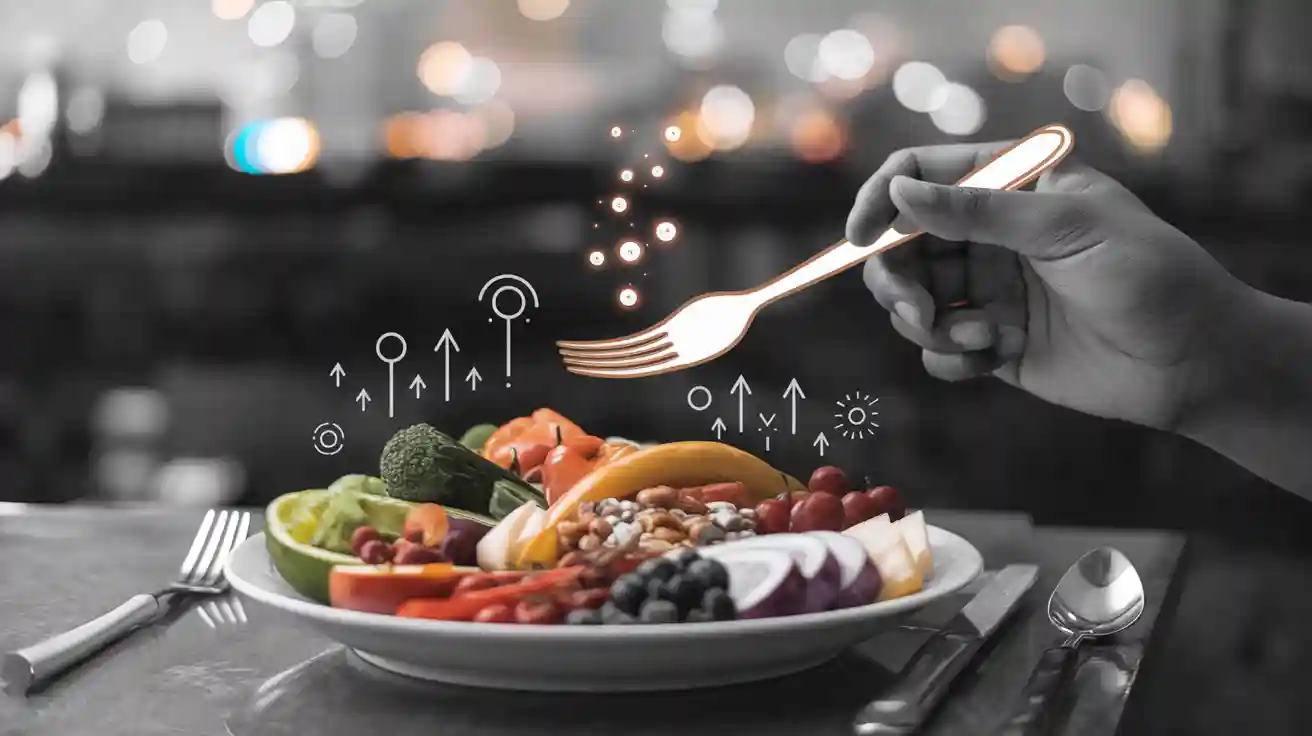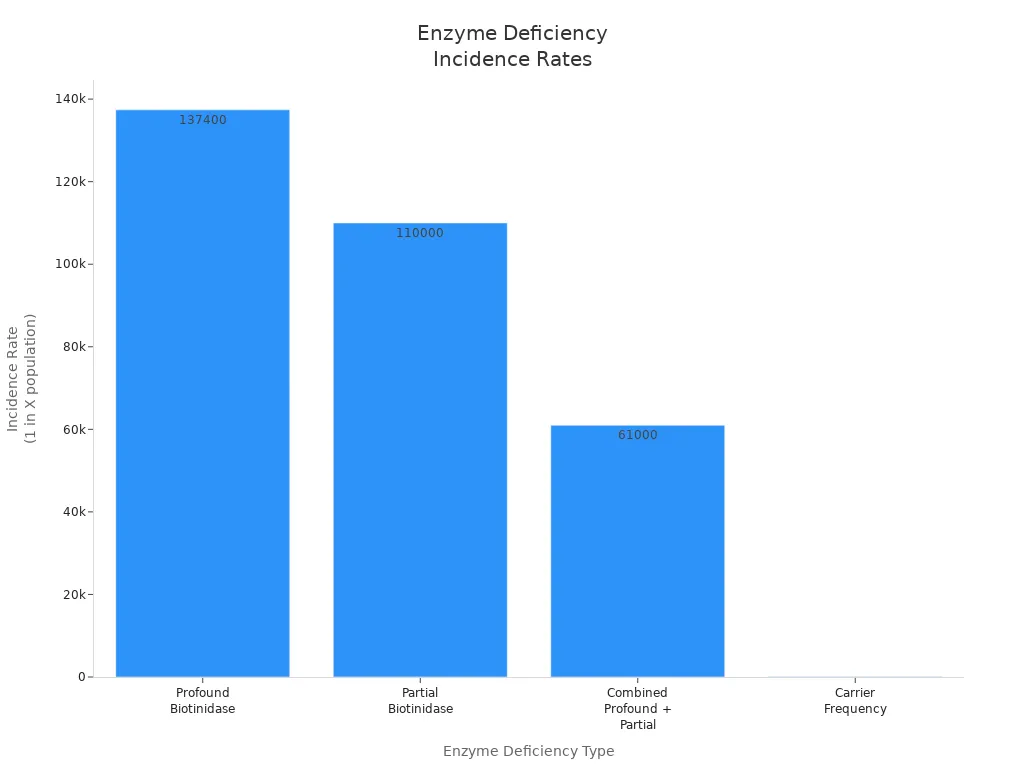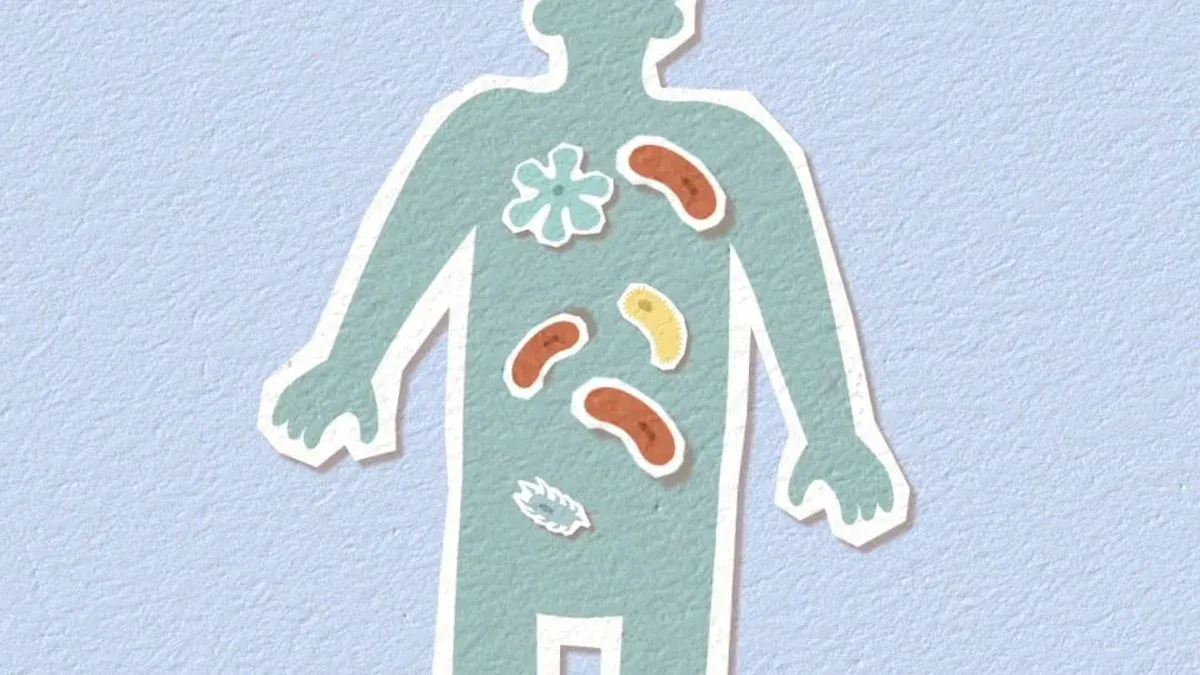Digestive Enzymes Make Eating Easier and Nutrients Stronger
Table of Contents

Have you ever felt bloated or sluggish after a meal? Sometimes your body struggles to break down food, making it hard to get the nutrients you need. Digestive enzymes like amylase, bromelain, and lipase help your body turn food into fuel. When digestion works well, you support your gut and overall health.
- Prebiotics in foods such as yogurt, whole grains, and bananas boost good gut bacteria.
- Gut microbes make short-chain fatty acids that help your immune system and keep your intestines strong.
Digestive enzymes make eating easier for you and help your body absorb nutrients better.
Digestive Enzymes Overview
What They Are
You might wonder what digestive enzymes actually do in your body. These are special proteins that help break down the food you eat into smaller pieces. This process is called chemical digestion. Unlike chewing, which only makes food smaller, digestive enzymes turn big food molecules into tiny ones your body can use. Your saliva, stomach, and pancreas all make these enzymes.
Here’s a simple table to show you the main types of digestive enzymes and what they do:
| Enzyme Type | Function |
|---|---|
| Lipases | Split fatty acids into fats and oils |
| Proteases | Split proteins into small peptides and amino acids |
| Amylases | Split carbohydrates into simple sugars |
| Nucleases | Split nucleic acids into nucleotides |
Each type of enzyme has a special job. For example, amylases break down bread and pasta, while lipases work on butter and oils. Proteases handle meats and beans. Your body needs all of these to get the most out of your meals.
Why They Matter
Digestive enzymes matter because they help you get nutrients from your food. Without them, your body can’t absorb vitamins, minerals, or energy very well. When you don’t have enough enzymes, you might feel stomachaches, gas, or even diarrhea. Some people need extra help, like those with pancreatic problems or lactose intolerance.
Did you know? Glucose-6-phosphate dehydrogenase deficiency is the most common enzyme problem in the world. It affects about 400 million people!
Check out this chart to see how common some enzyme deficiencies are:

Many people think you make fewer digestive enzymes as you get older, but that’s not true for most. Your body usually keeps making them unless you have a health issue. Digestive enzymes work with other parts of your digestive system, like stomach acid and gut bacteria, to help you feel your best every day.
Key Enzymes in Digestion

Amylase and Carbs
When you take a bite of bread or pasta, amylase jumps into action right away. This digestive enzyme starts working in your mouth, breaking down starches into smaller sugars. Salivary amylase slices up big starch molecules, turning them into dextrins and maltose. Only a small part of this job happens before you swallow, but the process doesn’t stop there. Once food reaches your small intestine, pancreatic amylase picks up the pace, breaking down those sugars even more so your body can absorb them. You need amylase to get energy from foods like potatoes, rice, and cereal.
Tip: Chewing your food well gives amylase more time to work, making digestion easier for you.
Bromelain and Proteins
If you’ve ever eaten pineapple, you’ve tasted bromelain in action. Bromelain is a special digestive enzyme found in pineapple stems. It helps break down proteins into smaller pieces called peptides and amino acids. Your body absorbs these tiny building blocks and uses them for muscle, skin, and even your immune system. Bromelain works by hydrolyzing peptide bonds, which means it cuts up protein chains so your gut can handle them better. Scientists have found that bromelain stays active in your digestive tract and may even help calm inflammation. People who struggle with protein digestion, like those with enzyme deficiencies, often find bromelain helpful.
Lipase and Fats
Lipase is the digestive enzyme that tackles fats. When you eat foods like butter, avocado, or cheese, lipase starts breaking down the fat molecules into fatty acids and glycerol. This process begins in your stomach and continues in your small intestine, where bile helps lipase reach more fat by breaking it into tiny droplets. Your body then absorbs these fatty acids for energy and cell health.
Why Enzyme Blends Matter
You don’t eat just one type of food at a meal, so your body needs a mix of digestive enzymes. Enzyme blends can help you digest proteins, fats, and carbs all at once. Products like NutriKey’s Key Digestive Enzymes combine several enzymes with herbs to support natural digestion. Using a blend gives you broader support and helps you feel better after eating.
Nutrient Absorption Benefits

How Enzymes Help
You want your body to get the most out of every meal. Digestive enzymes make that possible. When you eat, these enzymes break down food into tiny pieces your body can actually use. This process helps your gut absorb more nutrients from what you eat. If your body does not have enough enzymes, you might miss out on important vitamins and minerals.
Let’s look at what some recent studies found about digestive enzymes and nutrient absorption:
| Study Description | Findings |
|---|---|
| 2024 study in Frontiers in Nutrition | Significant increase in monosaccharide levels (glucose and fructose) after enzyme supplementation compared to placebo. |
| N-SORB® supplementation for 90 days | Improvement in gut health and metabolic functions. |
| DigeZyme® supplementation for 60 days | Significant improvement in efficacy parameters and reduction in gastrointestinal symptoms. |
These studies show that when you add digestive enzymes to your routine, your body absorbs more nutrients. You may notice less bloating and more energy after meals. Some people even see better gut health and fewer stomach problems.
Tip: If you often feel tired or have tummy troubles after eating, your body might need extra enzyme support.
Stronger Nutrients
Digestive enzymes do more than just break down food. They help your body unlock the full power of vitamins, minerals, and other nutrients. When food is broken into smaller parts, your gut can grab those nutrients and send them where they are needed most.
Here’s how digestive enzymes boost nutrient absorption and help you feel your best:
- They make vitamins and minerals easier for your body to absorb.
- They help your body get more amino acids from protein and more fatty acids from fats.
- They support energy production and keep you feeling strong.
Digestive enzymes are like tiny helpers in your gut. They make sure you get the most out of every bite. For example, a 2024 study found that enzyme supplements made it easier for your body to break down carbs and proteins. Another study showed that adding enzymes to plant protein helped your body absorb amino acids faster than from animal protein. If you have trouble digesting certain foods, like dairy or high-fiber veggies, enzyme supplements can help your body absorb more nutrients and reduce discomfort.
Note: People with conditions like exocrine pancreatic insufficiency or lactose intolerance often see big improvements in nutrient absorption when they use digestive enzyme supplements.
When you support your digestive enzymes, you help your body use food more efficiently. This means you get stronger nutrients, more energy, and better overall health.
Supporting Digestive Enzymes
Supplements
You might wonder if you need a supplement for better gut health. People with digestive disorders, like exocrine pancreatic insufficiency or lactose intolerance, often benefit from high-quality digestive enzymes. These supplements help your body break down food and absorb nutrients. You can find them over-the-counter or by prescription. Some supplements, like alpha-galactosidase, reduce gas and bloating. Others, such as gluten-digesting enzymes, help with gluten sensitivity. Lipase supplements make fatty meals easier to digest. Multi-enzyme blends, like Poolzyme® Multi, improve comfort after eating.
Here’s a quick look at how different enzyme supplements help:
| Enzyme Type | Condition Treated | Benefits |
|---|---|---|
| Porcine/Bovine Pancreatic | Exocrine Pancreatic Insufficiency | Manages digestion and nutrient absorption |
| Microbe-derived Lipase | Malabsorption, Lactose Intolerance | Safe, effective at lower dosages |
| Plant-based Enzymes | Protein Breakdown | Helps with protein digestion |
Supplements can ease symptoms like bloating, gas, and diarrhea. They also support better gut health by helping your body use nutrients from food.
Enzyme-Rich Foods
You don’t always need a pill to boost enzyme production. Many foods naturally contain enzymes that support better gut health. Try adding these to your meals:
| Food | Enzyme(s) | Function |
|---|---|---|
| Mangoes | Amylase | Breaks down carbs into sugars |
| Kiwi | Actinidin | Helps digest protein |
| Pineapple | Bromelain | Aids protein digestion |
| Papaya | Papain | Tenderizes meat, aids protein digestion |
| Bananas | Amylase, Glucosidase | Breaks down complex carbs |
| Honey | Diastase, Amylase, Invertase | Various digestive functions |
| Avocados | Lipase | Breaks down fats |
| Kefir | Lipases, Proteases, Lactases | Digests fats, proteins, and lactose |
| Sauerkraut | Various enzymes | Supports digestion of carbs, fats, proteins |
| Kimchi | Proteases, Lipases, Amylases | Digests proteins, fats, and carbs |
| Miso | Lactases, Lipases, Proteases | Various digestive functions |
Eating these foods can help your body break down meals and absorb nutrients more easily.
Healthy Habits
You can boost enzyme production and support better gut health with simple habits. Chew your food well. Eat on a regular schedule. Drink plenty of water. Choose fiber-rich foods and include probiotics and prebiotics in your diet. Stay active with walking, yoga, or swimming. Manage stress with deep breathing or meditation. Good sleep helps your body make enzymes and keeps your gut strong. Avoid processed foods when possible.
Tip: Chronic stress and poor sleep can slow down digestion and reduce enzyme production. Try to relax and get enough rest for a happier gut.
You’ve seen how amylase, bromelain, and lipase help you break down food and absorb nutrients. Research shows these enzymes work better when they’re stable and active, even at high temperatures. If you notice bloating, gas, or tummy aches, try keeping a food diary or talking with your doctor. New enzyme therapies are on the way, using cool tech like nanoparticles and encapsulation. Take charge of your digestive health—small changes can make you feel stronger every day! 😊
FAQ
What are digestive enzymes?
Digestive enzymes are proteins in your body that help break down food. They turn big food molecules into smaller pieces so you can absorb nutrients. You need them for healthy digestion and energy.
Can you get digestive enzymes from food?
Yes! You find natural enzymes in foods like pineapple, papaya, kiwi, and fermented foods. Eating these helps your body digest meals more easily.
Do you need enzyme supplements?
You might need supplements if you have trouble digesting food or certain health conditions. Most people get enough enzymes from their bodies and food. Talk to your doctor if you feel bloated or have tummy aches often.
Are digestive enzymes safe to take?
Most enzyme supplements are safe when you follow the directions. Some people may get mild side effects like gas or upset stomach. Always check with your healthcare provider before starting a new supplement.

Poseidon
Master of Nutritional Epidemiology, University of Copenhagen, Herbal Functional Nutrition Researcher
Focus: The scientific application of natural active ingredients such as Tongo Ali, Horny Goat Weed, and Maca to sexual health and metabolic regulation.
Core Focus:
Men: Use a combination of Tongo Ali (an energizing factor) + Maca (an energy reserve) to improve low energy and fluctuating libido.
Women: Use a combination of Horny Goat Weed (a gentle regulator) + Maca (a nutritional synergist) to alleviate low libido and hormonal imbalances.
Stressed/Middle-Aged Adults: This triple-ingredient synergy supports metabolism, physical strength, and intimacy.
Product Concept:
Based on traditional applications and modern research (e.g., Tongo Ali promotes testosterone-enhancing enzyme activity, and icariin provides gentle regulation), we preserve core active ingredients and eschew conceptual packaging—using natural ingredients to address specific needs.
Simply put: I'm a nutritionist who understands "herbal actives." I use scientifically proven ingredients like Tongo Ali, Epimedium, and Maca to help you make "sexual health" and "nutritional support" a daily routine.
